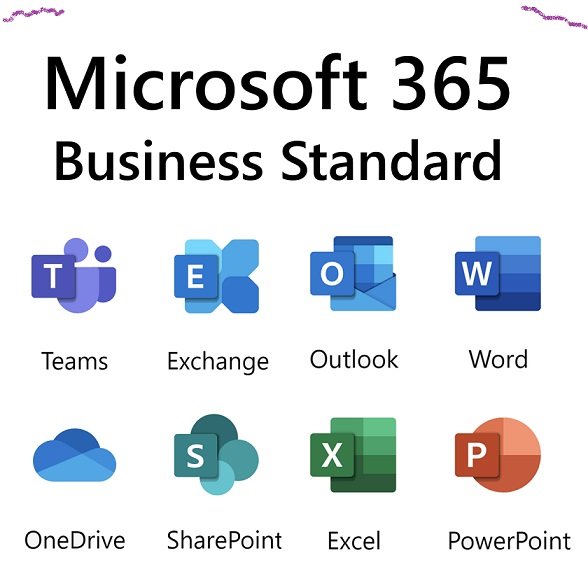Introduction to the Laundry Business
The laundry business is a thriving industry that offers a wide range of services, including washing, drying, and folding clothes for both individuals and businesses. Over the years, this sector has become a popular and lucrative venture, thanks to its steady demand and relatively low entry barriers. Whether you’re considering starting your own laundry business or want to know more about its growth prospects, this article covers everything you need to know—from essential startup steps to long-term growth strategies.
Types of Laundry Businesses
Before diving into the details of how to start a laundry business, it’s crucial to understand the different types of laundry services you can offer. Each type of business model has its own set of requirements, customer base, and profitability potential.
1. Self-Service Laundromats
Self-service laundromats are facilities where customers can wash and dry their clothes independently, typically for a small fee per load. These businesses are often open 24/7 and are ideal for areas with high foot traffic, such as urban centers, apartment complexes, or near college campuses.
Pros:
- Low labor costs
- Minimal customer interaction
- Flexible operational hours
Cons:
- Heavy reliance on equipment maintenance
- Potential for lower profit margins due to self-service model
2. Full-Service Laundry (Wash and Fold)
Full-service laundries offer a more personalized experience. Customers drop off their clothes for washing, drying, and folding, with the business handling the entire process.
Pros:
- Higher pricing potential
- Direct customer interaction enhances loyalty
Cons:
- Higher overhead costs (staff, utilities, etc.)
- Requires excellent customer service
3. Dry Cleaning Services
Dry cleaning is a specialized form of laundry where clothes are cleaned using non-water-based solvents. This service is typically used for delicate fabrics, such as suits, dresses, or items with stains that cannot be removed by traditional washing.
Pros:
- Higher profit margins on specialized services
- Opportunity to cater to niche markets (corporate clients, formalwear)
Cons:
- Requires expensive equipment and chemicals
- Limited customer base due to specialized nature
4. Pickup and Delivery Laundry Service
This type of business offers the convenience of picking up and delivering laundry directly to customers’ doorsteps. This model is gaining popularity, especially in urban areas where time constraints are high.
Pros:
- High convenience factor for customers
- Can tap into a growing e-commerce trend
Cons:
- Logistics and transportation costs
- Requires efficient scheduling and tracking systems

Steps to Start a Laundry Business
Starting a laundry business requires careful planning and execution. Below are the key steps to consider when launching your own laundry service.
1. Conduct Market Research
Before investing in any business, it’s important to research your local market. Find out what type of laundry services are in demand, identify your target customers, and analyze your competition. Consider factors such as:
- Demographics: Age, income levels, and lifestyle of potential customers.
- Geographic Location: Is there a high concentration of potential customers nearby (e.g., apartments, universities, hotels)?
- Competition: Analyze existing laundry services in your area. What can you do to differentiate your business?
2. Create a Business Plan
A solid business plan is essential for setting clear goals and obtaining financing. Your plan should cover the following key areas:
- Executive Summary: Overview of your business idea, goals, and target market.
- Services Offered: A detailed list of the services you plan to offer (e.g., self-service, full-service, dry cleaning, etc.).
- Marketing Strategy: How you plan to attract and retain customers.
- Financial Projections: Estimated startup costs, ongoing expenses, and expected revenue.
- Staffing Needs: Number of employees, job descriptions, and wages.
3. Choose a Suitable Location
Location is one of the most important factors in the success of a laundry business. High-traffic areas are ideal for self-service laundromats, while full-service or dry cleaning businesses may thrive in residential or business districts.
Factors to consider include:
- Rent costs
- Proximity to residential areas or office buildings
- Accessibility and parking space
- Local zoning regulations
4. Obtain Funding
The next step is to secure the necessary funding to start your laundry business. Common sources of capital include:
- Personal savings
- Bank loans
- Investors or partners
- Small business grants
Your business plan will be instrumental in convincing lenders or investors to fund your venture.
5. Acquire Equipment
Investing in high-quality laundry equipment is crucial for the efficiency and success of your business. Depending on the type of services you offer, you’ll need equipment such as:
- Washing machines and dryers
- Dry cleaning machines (if applicable)
- Commercial detergents and cleaning supplies
- Ironing and folding machines (for full-service models)
6. Register Your Business
To legally operate your laundry business, you’ll need to register with the appropriate authorities. This includes obtaining:
- Business licenses
- Tax Identification Number (TIN)
- Health and safety permits (if applicable)
7. Launch Marketing Campaigns
Before opening your laundry business, you’ll want to generate buzz. Marketing strategies for a laundry business may include:
- Local advertising (flyers, posters, radio ads)
- Online marketing (social media campaigns, SEO optimization)
- Referral programs (discounts for customers who refer new clients)
Cost Breakdown of Starting a Laundry Business
Starting a laundry business involves various costs. Here’s a simplified breakdown of some common expenses:
| Cost Item | Estimated Cost Range |
|---|---|
| Equipment (Washing Machines) | $500 to $10,000 per unit |
| Rent (Monthly) | $1,000 to $10,000 (location-dependent) |
| Utilities (Water, Gas, etc.) | $500 to $2,500 per month |
| Staff Salaries (if applicable) | $2,000 to $5,000 per month |
| Licensing and Permits | $500 to $2,000 |
| Marketing and Advertising | $500 to $3,000 per month |
| Insurance | $500 to $1,500 per year |
Key Strategies for Growing a Laundry Business
Once your laundry business is up and running, focus on growth. Here are some key strategies to ensure your business thrives:
1. Diversify Services
Offering a variety of services can help attract a broader customer base. Consider adding options like:
- Ironing and folding services
- Stain removal
- Alteration services
2. Leverage Technology
Investing in technology can streamline operations and improve customer experience. For example:
- Online booking and scheduling systems for pickup and delivery services
- POS systems for efficient payment processing
- Customer loyalty apps to reward repeat customers
3. Focus on Customer Service
Building strong relationships with customers is essential. Offering great customer service can lead to repeat business and word-of-mouth referrals. Ensure that your employees are well-trained, friendly, and professional.
4. Offer Discounts and Loyalty Programs
Attract new customers and retain existing ones by offering discounts or loyalty rewards. Consider:
- First-time customer discounts
- Referral incentives
- Discounts for bulk orders
5. Optimize Your Website for SEO
To reach a larger audience, ensure that your website is search engine optimized (SEO). This includes:
- Using relevant keywords (e.g., “laundry service near me,” “dry cleaning business”)
- Optimizing meta descriptions, titles, and headers
- Creating engaging blog posts or content about laundry tips and care
Conclusion
Starting and growing a successful laundry business requires careful planning, investment, and consistent customer service. By understanding the different types of laundry services, setting a solid foundation through market research and a well-thought-out business plan, and applying effective growth strategies, you can build a profitable business in this industry. With steady demand and ample opportunities for expansion, the laundry business remains a smart investment for aspiring entrepreneurs.




